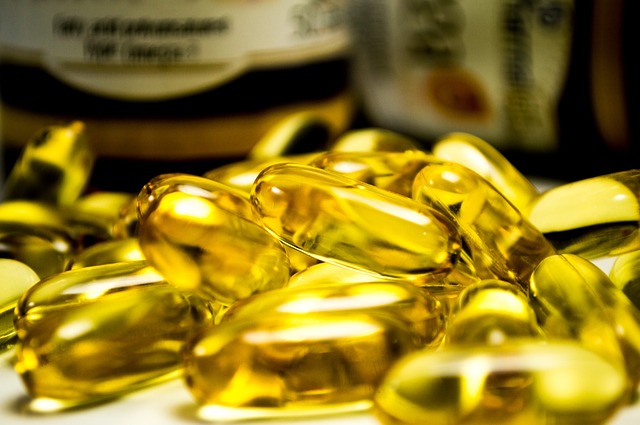Best supplements for men 50+ in the United States (2025): a practical guide to bone, hormone and immune support
Fact: After age 50, nutrient absorption often declines, which can affect bone, hormone and immune health. This guide helps men in the United States evaluate seven supplement options and the key nutrients to prioritize in 2025. You’ll learn what to test, which forms to prefer and how to use supplements safely alongside medical care.

As men enter their fifties and beyond, physiological changes create specific nutritional needs that diet alone may not fully address. Declining testosterone levels, reduced muscle mass, slower metabolism, and changes in nutrient absorption all contribute to potential deficiencies that targeted supplementation can help resolve.
Why targeted supplementation matters for men 50+
Age-related changes in the male body create distinct nutritional requirements. Testosterone production typically decreases by 1-2% annually after age 30, affecting muscle maintenance, bone density, and energy levels. Additionally, stomach acid production often declines with age, reducing the absorption of key nutrients like vitamin B12, calcium, and iron. The immune system also becomes less efficient, making adequate nutrition crucial for maintaining resistance to illness and supporting recovery.
Men over 50 frequently have lower dietary intake of essential nutrients due to reduced appetite, medication interactions, or lifestyle factors. Supplementation can bridge these gaps when whole foods fall short of meeting daily requirements.
Seven supplement options to evaluate in 2025 (what to consider)
When selecting supplements, quality, third-party testing, and bioavailability should guide decisions. Vitamin D3 supports bone health and immune function, with most men over 50 requiring 1000-2000 IU daily. Omega-3 fatty acids from fish oil provide cardiovascular and cognitive benefits, typically requiring 1000-2000mg of combined EPA and DHA.
Magnesium supports muscle function, sleep quality, and bone health, with glycinate forms offering better absorption than oxide versions. Vitamin B12 becomes increasingly important as absorption decreases with age, making sublingual or methylcobalamin forms preferable. Zinc supports immune function and testosterone production, though dosing should remain moderate to avoid copper depletion.
Calcium and vitamin K2 work synergistically for bone health, while probiotics can support digestive health and immune function. Each supplement should be evaluated based on individual needs, existing health conditions, and potential interactions with medications.
Key nutrients to prioritize and practical testing
Prioritizing nutrients based on common deficiencies and age-related needs helps create an effective supplementation strategy. Vitamin D deficiency affects nearly 40% of American adults, making it a primary consideration. Blood testing can reveal 25-hydroxyvitamin D levels, with optimal ranges typically between 30-50 ng/mL.
B-vitamin status, particularly B12 and folate, can be assessed through blood work, as deficiencies become more common with age. Omega-3 fatty acid levels can be measured through specialized testing, helping determine appropriate EPA and DHA dosing. Magnesium deficiency is difficult to detect through standard blood tests, as most magnesium is stored in bones and tissues rather than blood.
Regular monitoring through healthcare providers ensures supplementation remains appropriate and effective. Annual blood work can track key markers and help adjust dosing as needed.
Hormones, erectile function and supplements — what to know
Hormonal changes significantly impact men’s health after 50, with testosterone decline affecting multiple body systems. While supplements cannot replace hormone therapy when medically indicated, certain nutrients support healthy hormone production and function. Zinc deficiency can contribute to low testosterone levels, making adequate intake important for hormonal health.
Vitamin D plays a role in testosterone production, with studies showing correlations between vitamin D status and testosterone levels. Magnesium supports healthy testosterone levels and may help with sleep quality, which is crucial for hormone production.
Regarding erectile function, cardiovascular health plays a primary role, making heart-healthy nutrients like omega-3 fatty acids potentially beneficial. L-arginine and L-citrulline may support blood flow, though evidence for erectile function improvement remains limited. Any concerns about erectile function should be discussed with healthcare providers, as underlying health conditions often require medical evaluation and treatment.
| Supplement Category | Popular Brands | Monthly Cost Estimate |
|---|---|---|
| Vitamin D3 | Nature Made, Nordic Naturals | $8-15 |
| Omega-3 Fish Oil | Carlson, Life Extension | $15-30 |
| Magnesium | Doctor’s Best, KAL | $10-20 |
| Vitamin B12 | Jarrow, Solgar | $8-18 |
| Multivitamin | Rainbow Light, Garden of Life | $20-35 |
| Probiotics | Culturelle, Align | $25-40 |
Prices, rates, or cost estimates mentioned in this article are based on the latest available information but may change over time. Independent research is advised before making financial decisions.
Supplementation for men over 50 requires a thoughtful approach that considers individual health status, dietary intake, and specific age-related needs. Quality matters more than quantity, and working with healthcare providers ensures safe and effective supplementation strategies. Regular monitoring and adjustment help maintain optimal nutrient status while avoiding unnecessary supplementation or potential interactions with medications.




